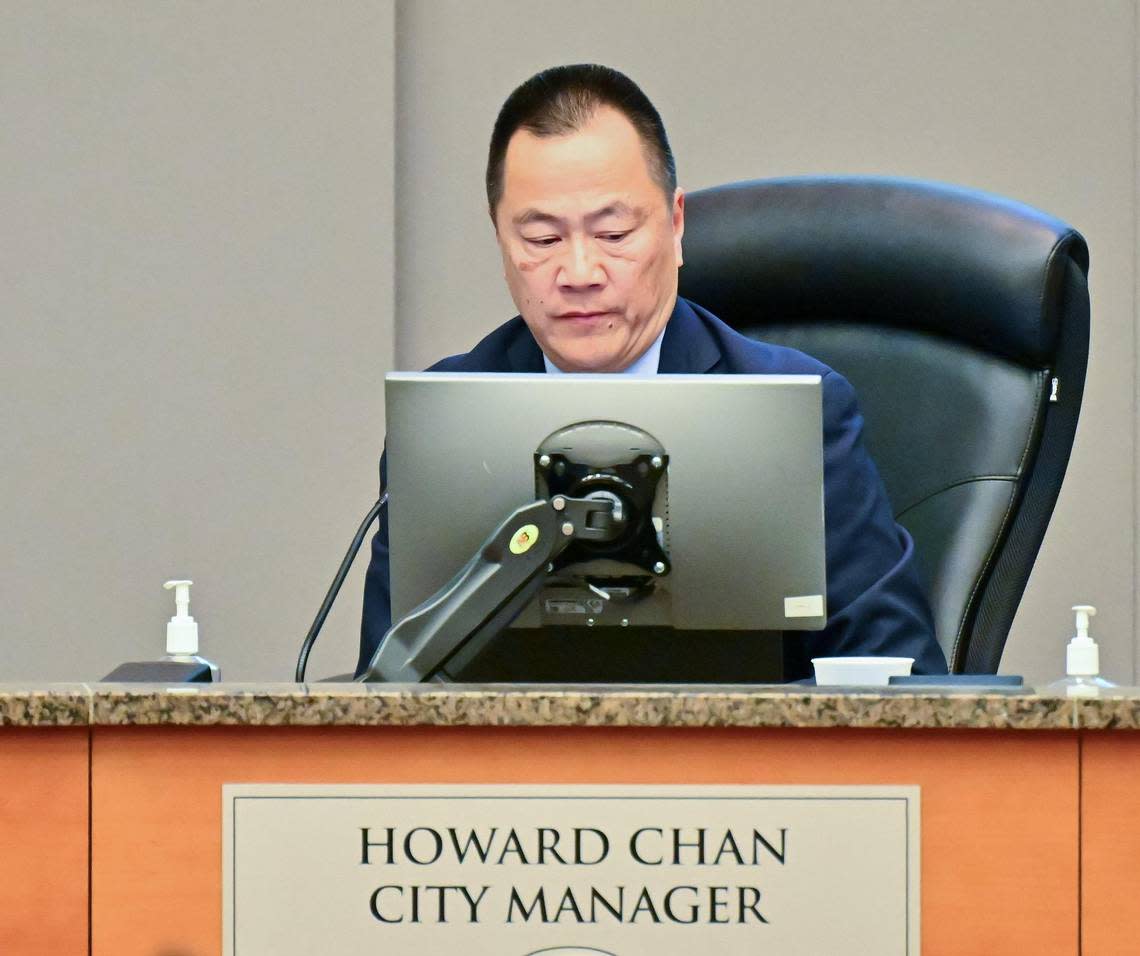Again? Another illegal Sacramento meeting on Howard Chan’s pay? Enough is enough | Opinion

Here we go again. Another Sacramento City Council meeting about the generous pay for City Manager Howard Chan? Another violation of state law?
Outgoing councilmember Katie Valenzuela told The Bee she wants City Attorney Susana Alcala Wood to determine whether the city violated the state’s open meeting law in a two-hour closed session on June 11 labeled as a performance evaluation of Chan.
“I’m very disturbed to hear that the salary negotiations are not allowed to be conducted in closed session under the Brown Act,” said Valenzuela, who was informed about Brown Act restrictions related to salary negotiations by a Bee reporter. “I will be asking the city attorney for an investigation into whether a violation occurred on Tuesday.”
Opinion
It appears that the words matter here and that if a closed session about performance drifts into a conversation about pay, a legal line has been crossed.
The Brown Act, California’s open meetings law, states that government bodies in closed session evaluating performance “shall not include discussion or action on proposed compensation except for a reduction of compensation that results from the imposition of discipline.”
The only relevant exemption is when a council wants to negotiate a labor agreement, including one for its city manager. These negotiations should be publicly noticed as such on the council agendas as a “conference with labor negotiators (Brown Act section 59454.5).”
For Alcala Wood, the gold standard of guidance from her peers is the Brown Act Committee of the League of California Cities. It publishes a meticulous report on how city attorneys can comply with the law. It does not appear that Alcala Wood followed the guidance. A closed session on a city manager’s pay is to be placed on an agenda “as part of a labor negotiation,” according to the league. This specific issue of legally placing a closed session about pay on an agenda is “yet another example of the importance of using correct agenda descriptions.”
We await an explanation, but the city’s recent track record on Chan’s pay does not inspire confidence.
Alcala Wood is the same city attorney who presided over a meeting last December about Chan’s pay that turned out to be illegal — and did nothing to stop it.
At that time, Chan scheduled a “special meeting” about his compensation with barely a day’s notice for a Dec. 12 proposal to raise his pay by 5% and the city attorney’s as well. Also proposed was an exclusive bump in vacation pay for Chan that he could cash out — six additional weeks. Chan had received an astonishing 64 weeks of extra leave from the council in two separate actions the year before.
That December meeting violated a state law that precludes any jurisdiction from calling an urgent special meeting simply to increase the top executive’s pay. The meeting was rescheduled for January. But by then, a chastened council majority tabled any discussion about Chan’s pay. And the council removed Chan’s ability to place his pay on any future agenda.
Only a few weeks ago, outgoing Mayor Darrell Steinberg told a member of The Bee Editorial Board that he had no intention of bringing Chan’s contract, which expires this year, back to the council for any deliberation. He said he would await the guidance of his successor, who will be elected this November.
Yet here we are again. Did Chan put a discussion of his performance on a closed-session agenda? Did Steinberg change his mind about Chan’s pay for some reason? So far, the city hasn’t answered The Bee.
Chan was California’s highest-paid city manager in 2022. His job is to make the mayor and City Council look good. But time after time, when it comes to his pay, he has made his bosses look bad. In the end, it is the mayor and the council who are creating a distraction from the public’s business.
On Friday, councilmember Lisa Kaplan posted a comment on X that the “Brown Act 100% allows councils to discuss raises in closed sessions as it relates to employee evaluations.” Even if she is correct, and we doubt that she is, there is a larger point that eludes a tone-deaf Kaplan and too many of her colleagues:
Why are you discussing another raise for Chan after illegally trying in December; after raising his base salary by 42% between 2017 and 2022 and after granting Chan 64 weeks of paid leave that he could cash out at any time? Chan’s contract runs out in December, and it seems his compensation will be an obsession for him and the city council until he walks out the door.


